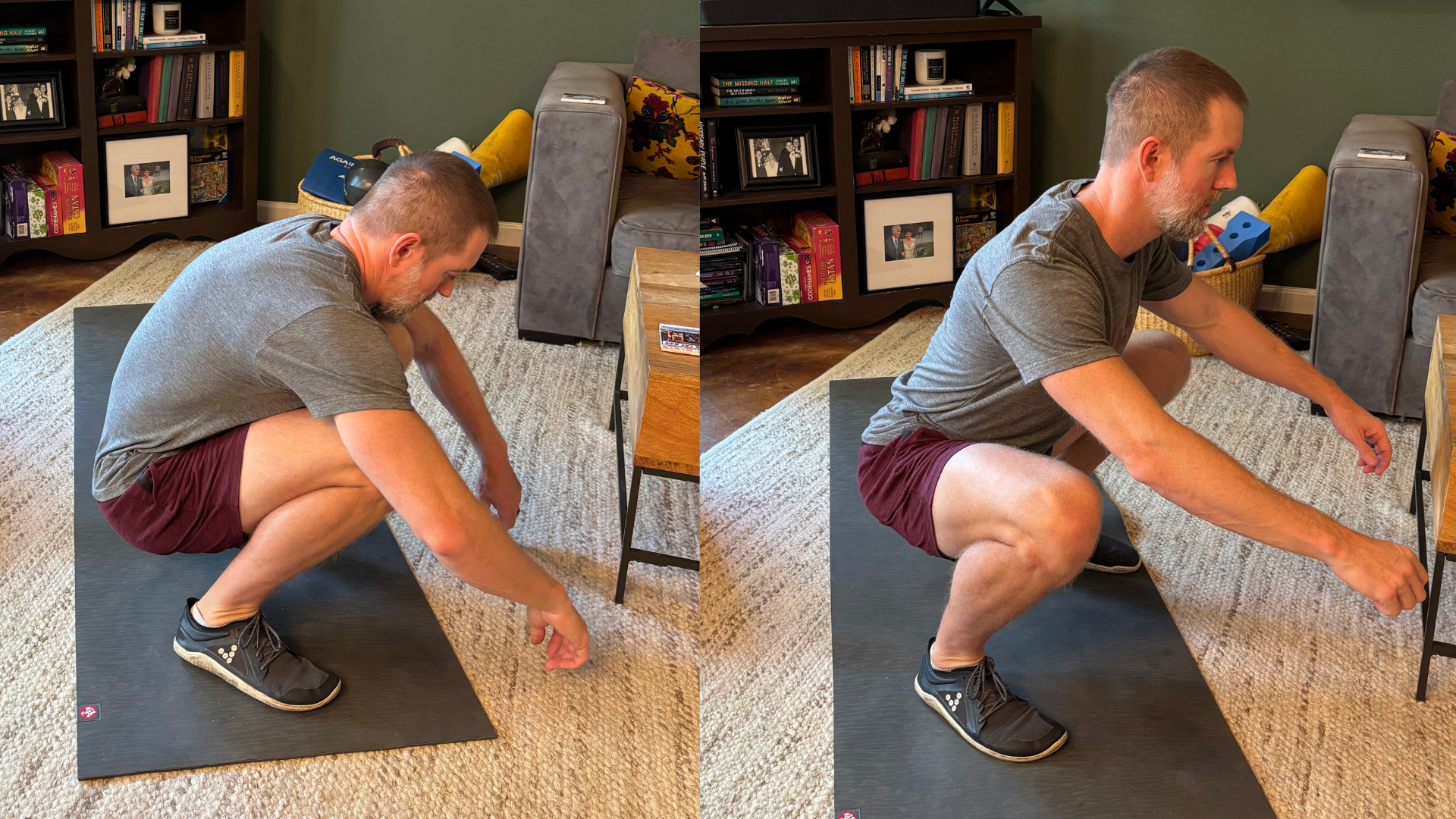Surrounded by Supernormal Stimuli
Written by Kyle Ligon - MovementLink.FIT Head Coach
To sell more food products, the food industry invents and manufactures processed foods in a way that triggers our brains to crave the food. A consequence is that the strategies these companies use don’t just get us to eat more, but tigger our body to store more body fat! To understand this issue and how powerful these triggers can be, we need to understand why these supernormal stimuli fool our brains. I attribute the long-term success to my nutrition to identifying these supernormal stimuli and having strategies in place that limit their impact on my brain!
Let’s look at supernormal stimuli at work in birds. Some species of birds have evolved to prefer different attributes of eggs. After laying multiple eggs, they select one that they determine to be the best egg and put all their parental efforts towards that one egg. Ringed plovers prefer a round egg with large spots. Oystercatchers prefer larger eggs. Birds rely on these attributes so much that they can be easily fooled by researchers. The birds will actually choose artificial eggs with exaggerated attributes over their real eggs. The oystercatcher, who prefers large eggs, will even choose an artificial egg that is bigger than itself! In the environment from which these birds’ preferences evolved, it was always a good choice for the birds to choose the best egg based on these preferred attributes. Never before had the birds been exposed to exaggerated versions of their preferences and so have never developed strategies to account for what is called a “supernormal stimulus”. Luckily for the birds, it is rare that a scientist is putting artificial eggs in their nest, so the fact that they can be easily tricked isn’t likely a problem that they will need to solve as a species. Just like the scientists adding fake eggs, there are scientists manufacturing and marketing foods that are highly palatable, high calorie density, and habit forming. We even have access to natural foods like honey in unnatural quantities, something our human brains have not learned to handle. Unlike the birds’ issue however, these supernormal stimuli are part of most people’s everyday lives.
Our human brains and bodies are incredible. Over millions of years, we have evolved tons of behind-the-scenes processes that keep us healthy and alive. We do not consciously control most of these processes and most are highly reactive to our environment and behaviors. The current issue humans are struggling with is that modern conveniences have only existed in 0.008% of our evolution, so the more primitive aspects of our brains hasn’t been able to keep pace and the processes it uses don’t match our current reality. For example:
There are a lot of bodily processes and gene expressions that change throughout the day. For most of our existence it was extremly easy for our internal clocks to determine, primarily based on the sunlight, temperature, and when we eat, what part of the day it is, but now our internal clocks are easily confused throwing off our circadian rhythm. Our current environment includes access to 24-hour light sources, constant, air conditioned temperatures, and late night snacking all of which throw off our digestion, sleep, hunger, and energy levels to the detriment of our health.
Most are living life overstimulated, moving from one stress to the next wearing stress and lack of sleep like badges of honor that somehow prove how hard they work.
Most of us are sedentary at our desks, in cars, or on the couch for most of the day.
Most of us are deficient in Vitamin D as we are spending more time indoors and getting less and less exposure to the sun.
Video games, social media, pornography, and gambling, along with high calorie, extremly high palatability foods being easily accessible crashes our dopamine system.
The types and amounts of certain foods in our food supply drive us to overeat and crave.
Even though we have spent most of our lives with these things, all of these are relatively new to us (as far as evolution is concerned) that the primitive aspects of our brain, the limbic system, have not had time to evolve to incorporate our modern circumstances.
Let’s imagine our life thousands of years ago as a hunter-gatherer - it revolved around survival: getting food and water, avoiding predators, being included in a tribe, and contributing to the next generation. With high calorie foods being extremly rare and with tons of energy expended hunting, gathering, and preparing food, famine was a real threat while obesity was non-existent. Let’s say as we were foraging we came across a beehive full of honey. From an evolutionary perspective, having a mechanism that got triggered by the availability of high calorie food that motivated us to eat as much as possible, along with processes that would store as much of it as body fat would make very good sense. We could store body fat to be used later when food was harder to come by. Even with this decision making process that pushes us to crave and eat as much as possible, with these high-calorie food scenarios being so few and far in between, obesity was still never an issue. But, because our brain still works that way today, with all the highly palatable, high-calorie, high-sugar processed foods around, we have a big problem with supernormal stimuli. We have a brain that is pushing us to take advantage of what used to be a rare opportunities, but our reality now is that it is all day every day. Our limbic brain pushes us to consume because never before was that not good choice.
Depending on how our brain registers our circumstances and our environment, especially relative to survival, it uses hormones to send us signals to motivate us in different ways, while also turning genes’ expression on and off and running numerous other internal processes. When we exercise, we logically know that the workout will end before we die, but our limbic brain does not know that. While we are consciously trying to push through the pain, the challenge comes from acting against our body’s signals designed to motivate us to slow down or stop. When in a sauna or a cold plunge our limbic brain recognizes that if we don’t eventually get out that we will die, so, because it doesn’t know that we are planning to get out before that, it works hard to protect us and signals us to get out.
These signals and processes are strong and take a lot of willpower and understanding of purpose to act against. Now, imagine you are trying to lose body fat, but have chosen a method that causes you to work against the signals and processes of your brain. Exercise and hot and cold exposure require you to go against your brain signals for a short amount of time, but your diet is with you all the time. In my opinion, one of the biggest keys to success in maintaining a healthy diet is ensuring that what we want is the same thing that our limbic brain wants, which means avoiding these supernormal stimuli caused by processed foods, sugars, added sugars, and artificial sweeteners. When we have a diet centered around real food and when our lifestyle is full of other healthy habits our brain is not being triggered into fat storage mode and instead will fight to defend a lean Body Fat Set Point. When you and your brain are working towards the same goals, a healthy diet is easy.
Next, dive into how brain regions react to how it perceives our circumstances and how those processes work together like a thermostat in your home, but for modulating body fat instead in my article : Control Your Lipostat to Lose Body Fat.
Healthy Takeaway:
If you brain thinks there’s just real food like meat, fish, eggs, vegetables, fruit, nuts, seeds, etc., then it will focus on nutrients and health. When it thinks there’s sugar around, then the brain says eat eat eat and wants to store more and more body fat. There is no off switch. Controlling the types of foods in your diet controls the environment your brain is perceiving, which controls how much willpower required to eat healthy. This is exactly opposite of what most people imagine - the healthier your diet, the less willpower you need. The more crap that is mixed in, the harder it will be to fight cravings.









